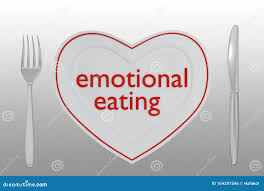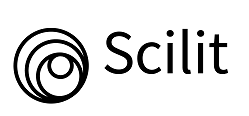El papel de la alimentación emocional como mecanismo de alivio del malestar psicológico y su impacto en el bienestar general
DOI:
https://doi.org/10.25118/2763-9037.2024.v14.1268Palabras clave:
alimentación emocional, comida reconfortante, estrés, dopamina, sistema de recompensa, alivio temporal, obesidadResumen
La alimentación emocional, caracterizada por el consumo de alimentos muy sabrosos y ricos en calorías en respuesta a angustia psicológica y emociones negativas, plantea un desafío importante para la salud y el bienestar públicos globales. Sobre la base de los estudios que muestran la compleja interacción entre los estados emocionales y las elecciones dietéticas, se destacó el papel motivacional de la búsqueda de alivio, que según la teoría de reducción de impulsos de Hull, enfatiza el papel de los impulsos internos y las señales externas. La incapacidad para afrontar sentimientos negativos y/o tensión alta indica que la regulación de las emociones puede ser un factor crítico para mantener el bienestar, ya que la regulación adaptativa protege contra las emociones negativas y los factores estresantes externos; que si no se desarrolla adecuadamente, puede conducir a estrategias de afrontamiento evitativas, que pueden contribuir a los síntomas del trastorno alimentario. Por lo tanto, la desregulación de la ingesta de alimentos hedónica y homeostática, el control cortical comprometido y las alteraciones en la señalización intestinal están implicados en la obesidad provocada por la alimentación inducida por el estrés. Por lo tanto, esta revisión tiene como objetivo analizar más a fondo estas observaciones para proporcionar una mejor comprensión del papel de la alimentación emocional a la hora de proporcionar un alivio del malestar psicológico, enfatizando el impacto de la comida en el sistema de recompensa; al mismo tiempo que proporciona información sobre enfoques holísticos de mitigación emergentes que, al promover mecanismos alternativos de afrontamiento y una nutrición y suplementación adecuadas, pueden ayudar a ayudar en el manejo de la alimentación emocional y reducir la carga relacionada con esas enfermedades.
Descargas
Métricas
Citas
Yau YH, Potenza MN. Stress and eating behaviors. Minerva Endocrinol. 2013;38(3):255-67. PMID:24126546 PMCID:PMC4214609
Herman JP, McKlveen JM, Ghosal S, Kopp B, Wulsin A, Makinson R, Scheimann J, Myers B. Regulation of the hypothalamic-pituitary-adrenocortical stress response. Compr Physiol. 2016;6(2):603-21. https://doi.org/10.1002/cphy.c150015 PMID:27065163 PMCID:PMC4867107
Lazarevich I, Irigoyen Camacho ME, Velázquez-Alva MDC, Zepeda Zepeda M. Relationship among obesity, depression, and emotional eating in young adults. Appetite. 2016;107:639-44. https://doi.org/10.1016/j.appet.2016.09.011 PMID:27620648
Panduro A, Rivera-Iniguez I, Sepulveda-Villegas M, Roman S. Genes, emotions and gut microbiota: the next frontier for the gastroenterologist. World J Gastroenterol. 2017;23(17):3030-42. https://doi.org/10.3748/wjg.v23.i17.3030 PMID:28533660 PMCID:PMC5423040
Cherry K. Why should you study the drive-reduction theory of motivation? [place unknown]: About.com Health; 2016.
Keramati M, Gutkin B. Homeostatic reinforcement learning for integrating reward collection and physiological stability. Elife. 2014;3:e04811. https://doi.org/10.7554/elife.04811 PMID:25457346 - PMCID:PMC4270100
Ljubicic M, Matek Saric M, Klarin I, Rumbak I, Colic Baric I, Ranilovic J, Dzelalija B, Saric A, Nakic D, Djekic I, Korzeniowska M, Bartkiene E, Papageorgiou M, Tarcea M, Cernelic-Bizjak M, Klava D, Szucs V, Vittadini E, Bolhuis D, Guiné RPF. Emotions and food consumption: emotional eating behavior in a european population. Foods. 2023;12(4):872. https://doi.org/10.3390/foods12040872 PMID:36832947 - PMCID:PMC9957014
Guerrini-Usubini A, Cattivelli R, Scarpa A, Musetti A, Varallo G, Franceschini C, Castelnuovo G. The interplay between emotion dysregulation, psychological distress, emotional eating, and weight status: a path model. Int J Clin Health Psychol. 2023;23(1):100338. https://doi.org/10.1016/j.ijchp.2022.100338 PMID:36199369 PMCID:PMC9512843
Dakanalis A, Mentzelou M, Papadopoulou SK, Papandreou D, Spanoudaki M, Vasios GK, Pavlidou E, Mantzorou M, Giaginis C. The association of emotional eating with overweight/obesity, depression, anxiety/stress, and dietary patterns: a review of the current clinical evidence. Nutrients. 2023;15(5):1173. https://doi.org/10.3390/nu15051173 PMID:36904172 PMCID:PMC10005347
Chervonsky E, Hunt C. Emotion regulation, mental health, and social wellbeing in a young adolescent sample: a concurrent and longitudinal investigation. Emotion. 2019;19(2):270-82. https://doi.org/10.1037/emo0000432 PMID:29697988
Igra L, Shilon S, Kivity Y, Atzil-Slonim D, Lavi-Rotenberg A, Hasson-Ohayon I. Examining the associations between difficulties in emotion regulation and symptomatic outcome measures among individuals with different mental disorders. Front Psychol. 2023;14:944457. https://doi.org/10.3389/fpsyg.2023.944457 PMID:36998365 - PMCID:PMC10043222
Santos T, Uva AS, Rodrigues JF, Ferreira R, Monteiro D, Hernández-Mendo A, Rodrigues F. The future looks good: examining the associations between coping, psychological distress, and optimism. Front Psychol. 2022;13:838835. https://doi.org/10.3389/fpsyg.2022.838835 PMID:35586235 PMCID:PMC9108386
Vanzhula IA, Sala M, Christian C, Hunt RA, Keshishian AC, Wong VZ, Ernst S, Spoor SP, Levinson CA. Avoidance coping during mealtimes predicts higher eating disorder symptoms. Int J Eat Disord. 2020;53(4):625-30. https://doi.org/10.1002/eat.23254 PMID:32112594
Meyer C, Taranis L, Goodwin H, Haycraft E. Compulsive exercise and eating disorders. Eur Eat Disord Rev. 2011;19(3):174-89. https://doi.org/10.1002/erv.1122 PMID:21584911
Stanisławski K. The coping circumplex model: an integrative model of the structure of coping with stress. Front Psychol. 2019;10:694. https://doi.org/10.3389/fpsyg.2019.00694 PMID:31040802 - PMCID:PMC6476932
Bagrowska P, Gaweda L. Emotional eating-A response to or one of the causes of paranoia-like thoughts? The bidirectional mediating role of avoidant coping. Psychiatry Res Commun. 2023;3(4):100141. https://doi.org/10.1016/j.psycom.2023.100141
Mishra J, Samanta P, Panigrahi A, Dash K, Behera MR, Das R. Mental health status, coping strategies during Covid-19 pandemic among undergraduate students of healthcare profession. Int J Ment Health Addict. 2023;21:562-74. https://doi.org/10.1007/s11469-021-00611-1 PMID:34393684 - PMCID:PMC8354097
Bemanian M, Mæland S, Blomhoff R, Rabben AK, Arnesen EK, Skogen JC, Fadnes LT. Emotional eating in relation to worries and psychological distress amid the Covid-19 pandemic: a population-based survey on adults in Norway. Int J Environ Res Public Health. 2020;18(1):130. https://doi.org/10.3390/ijerph18010130 PMID:33375442 - PMCID:PMC7795972
Franklin JC, Lee KM, Hanna EK, Prinstein MJ. Feeling worse to feel better: pain-offset relief simultaneously stimulates positive affect and reduces negative affect. Psychol Sci. 2013;24(4):521-9. https://doi.org/10.1177/0956797612458805 PMID:23459871
Klatzkin RR, Nolan LJ, Kissileff HR. Self-reported emotional eaters consume more food under stress if they experience heightened stress reactivity and emotional relief from stress upon eating. Physiol Behav. 2022;243:113638. https://doi.org/10.1016/j.physbeh.2021.113638 PMID:34742909 PMCID:PMC8717738
Reiss, S. Who am I: the 16 basic desires that motivate our actions and define our personalities. New York: Penguin Publishing Group; 2002.
Reiss S. Extrinsic and intrinsic motivation at 30: unresolved scientific issues. Behav Anal. 2005;28:1-14. https://doi.org/10.1007/bf03392100 PMID:22478436 PMCID:PMC2755352
Reiss S. Multifaceted nature of intrinsic motivation: the theory of 16 basic desires. Rev Gen Psychol. 2004;8(3):179-93. https://doi.org/10.1037/1089-2680.8.3.179
Shriver LH, Dollar JM, Calkins SD, Keane SP, Shanahan L, Wideman L. Emotional eating in adolescence: effects of emotion regulation, weight status and negative body image. Nutrients. 2020;13(1):79. https://doi.org/10.3390/nu13010079 PMID:33383717 - PMCID:PMC7824438
Godet A, Fortier A, Bannier E, Coquery N, Val-Laillet D. Interactions between emotions and eating behaviors: main issues, neuroimaging contributions, and innovative preventive or corrective strategies. Rev Endocr Metab Disord. 2022;23(4):807-31. https://doi.org/10.1007/s11154-021-09700-x PMID:34984602
Chang RS, Cerit H, Hye T, Durham EL, Aizley H, Boukezzi S, Haimovici F, Goldstein JM, Dillon DG, Pizzagalli DA, Holsen LM. Stress-induced alterations in HPA-axis reactivity and mesolimbic reward activation in individuals with emotional eating. Appetite. 2022;168:105707. https://doi.org/10.1016/j.appet.2021.105707 PMID:34562531 - PMCID:PMC8671188
Lewis RG, Florio E, Punzo D, Borrelli E. The brain's reward system in health and disease. Adv Exp Med Biol. 2021;1344:57-69. https://doi.org/10.1007/978-3-030-81147-1_4 PMID:34773226 PMCID:PMC8992377
DiFeliceantonio AG, Coppin G, Rigoux L, Edwin Thanarajah S, Dagher A, Tittgemeyer M, Small DM. Supra-additive effects of combining fat and carbohydrate on food reward. Cell Metab. 2018;28(1):33-44.e3. https://doi.org/10.1016/j.cmet.2018.05.018 PMID:29909968
Rivera-Iniguez I, Panduro A, Villasenor-Bayardo SJ, Sepulveda-Villegas M, Ojeda-Granados C, Roman S. Influence of a nutrigenetic intervention on self-efficacy, emotions, and rewarding behaviors in unhealthy eating among Mexicans: an exploratory pilot study. Nutrients. 2022;14(1):213. https://doi.org/10.3390/nu14010213 PMID:35011088 - PMCID:PMC8747616
Bassareo V, Di Chiara G. Modulation of feeding-induced activation of mesolimbic dopamine transmission by appetitive stimuli and its relation to motivational state. Eur J Neurosci. 1999;11(12):4389-97. https://doi.org/10.1046/j.1460-9568.1999.00843.x PMID:10594666
Fiorino DF, Coury A, Phillips AG. Dynamic changes in nucleus accumbens dopamine efflux during the Coolidge effect in male rats. J Neurosci. 1997;17(12):4849-55. https://doi.org/10.1523/jneurosci.17-12-04849.1997 PMID:9169543 - PMCID:PMC6573325
Di Chiara G, Imperato A. Drugs abused by humans preferentially increase synaptic dopamine concentrations in the mesolimbic system of freely moving rats. Proc Natl Acad Sci U S A. 1988;85(14):5274-8. https://doi.org/10.1073/pnas.85.14.5274 PMID:2899326 PMCID:PMC281732
Killgore WD, Kipman M, Schwab ZJ, Tkachenko O, Preer L, Gogel H, Bark JS, Mundy EA, Olson EA, Weber M. Physical exercise and brain responses to images of high-calorie food. Neuroreport. 2013;24(17):962-7. https://doi.org/10.1097/wnr.0000000000000029 PMID:24080950
Zielinska D, Karbowiak M, Brzezicka A. The role of psychobiotics to ensure mental health during the Covid-19 pandemic-a current state of knowledge. Int J Environ Res Public Health. 2022;19(17):11022. https://doi.org/10.3390/ijerph191711022 PMID:36078738 - PMCID:PMC9518511
Loniewski I, Skonieczna-Zydecka K, Solek-Pastuszka J, Marlicz W. Probiotics in the management of mental and gastrointestinal post-Covid symptomes. J Clin Med. 2022;11(17):5155. https://doi.org/10.3390/jcm11175155 PMID:36079082 PMCID:PMC9457065
Sharma A, Das AK, Jain A, Purohit DK, Solanki RK, Gupta A. Study of Association of Various Psychiatric Disorders in Brain Tumors. Asian J Neurosurg. 2022;17(4):621-30. https://doi.org/10.1055/s-0042-1757437 PMID:36570750 PMCID:PMC9771634
Lalitsuradej E, Sirilun S, Chaiyasut C, Sittiprapaporn P. A preliminary study on effect of lactobacillus paracasei HII01 on cortisol in fatigue subjects. 16th International Conference on Electrical Engineering/Electronics, Computer, Telecommunications and Information Technology; 2019 Jul 10-13; Pattaya. New Yotk: IEEE; 2019. p. 466-9. https://doi.org/10.1109/ECTI-CON47248.2019.8955402
Andersson H, Tullberg C, Ahrné S, Hamberg K, Lazou Ahrén I, Molin G, Sonesson M, Hakansson A. Oral administration of lactobacillus plantarum 299v reduces cortisol levels in human saliva during examination induced stress: a randomized, double-blind controlled trial. Int J Microbiol. 2016;2016:8469018. https://doi.org/10.1155/2016/8469018 PMID:28101105 PMCID:PMC5217173
Kargbo RB. Restoration of motor function post-neurological injury using serotonergic agonist. ACS Med Chem Lett. 2022;13(9):1397-9. https://doi.org/10.1021/acsmedchemlett.2c00352 PMID:36105333 PMCID:PMC9465889

Descargas
Publicado
Cómo citar
Número
Sección
Licencia
Derechos de autor 2024 Joanna Michalina Jurek, Agnieszka Maruda

Esta obra está bajo una licencia internacional Creative Commons Atribución-NoComercial 4.0.
Debates em Psiquiatria permite que el (los) autor (es) mantenga(n) sus derechos de autor sin restricciones. Permite al (los) autor (es) conservar sus derechos de publicación sin restricciones. Los autores deben garantizar que el artículo es un trabajo original sin fabricación, fraude o plagio; no infringe ningún derecho de autor o derecho de propiedad de terceros. Los autores también deben garantizar que cada uno atendió a los requisitos de autoría conforme a la recomendación del ICMJE y entienden que, si el artículo o parte de él es fallido o fraudulento, cada autor comparte la responsabilidad.
Reconocimiento-NoComercial 4.0 internacional (CC BY-NC 4.0) - Debates em Psiquiatria es regida por la licencia CC-BY-NC
Usted es libre de:
- Compartir — copiar y redistribuir el material en cualquier medio o formato
- Adaptar — remezclar, transformar y crear a partir del material
El licenciador no puede revocar estas libertades mientras cumpla con los términos de la licencia. Bajo las condiciones siguientes:
- Reconocimiento — Debe reconocer adecuadamente la autoría, proporcionar un enlace a la licencia e indicar si se han realizado cambios<. Puede hacerlo de cualquier manera razonable, pero no de una manera que sugiera que tiene el apoyo del licenciador o lo recibe por el uso que hace.
- NoComercial — No puede utilizar el material para una finalidad comercial.
No hay restricciones adicionales — No puede aplicar términos legales o medidas tecnológicas que legalmente restrinjan realizar aquello que la licencia permite.





























